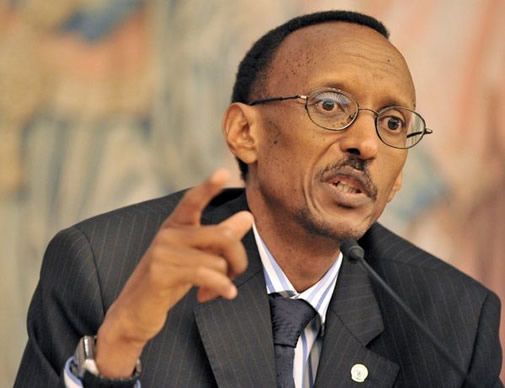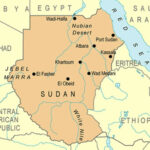
The Rwandan High Commissioner to Nigeria, Christophe Bazivamo, stated this at the 30th commemoration of the 1994 Genocide against the Tutsi in Abuja.
The commemoration is observed under the multi-year theme, “Remember – Unite – Renew”.
Rwanda on Sunday began with sombre commemorations for the 30th anniversary of the 1994 genocide, a mass slaughter orchestrated by Hutu extremists against the Tutsi minority over 100 bloody days.
More than a million men, women and children, mainly ethnic Tutsis but also moderate Hutus, were killed in the onslaught that saw families and friends turn against each other in one of the darkest episodes of the late 20th century.
Three decades on, the tiny landlocked nation has rebuilt under the rule of President Paul Kagame, but the traumatic legacy of the genocide lingers, reverberating across the region, according to AFP.
In keeping with tradition, April 7 — the day Hutu extremists and militias unleashed their horrific killing spree in 1994 — will be marked by Kagame lighting a remembrance flame at the Kigali Genocide Memorial, where more than 250,000 victims are believed to be buried.
The United Nations and the African Union, among others, will also hold remembrance ceremonies.
“This year, we remind ourselves of genocide’s rancid root: hate,” UN Secretary-General Antonio Guterres said in a message marking the anniversary.
“To those who would seek to divide us, we must deliver a clear, unequivocal and urgent message: never again,” as quoted by AFP.
Bazivamo stated that the path to lasting peace demands constant vigilance, adding that “As we renew, we restate our unbreakable pledge to fight intolerance, discrimination, ethnic hatred, hate speeches, genocide revisionism, and denial in all their forms.
“Unfortunately, this is happening today just beyond Rwanda’s borders in the Great Lakes region. We should never allow the embers of hatred to reignite.”
The High Commissioner further stated, “On this Kwibuka 30, together, we can ensure that the memory of the victims becomes a powerful force for good, inspiring future generations to choose peace over hate, unity over division, and hope over despair.
“This can be achieved in different ways including putting course lessons about the 1994 Genocide against the Tutsi in schools and the establishment of memory symbols in remembrance of the 1994 Genocide against the Tutsi to educate the young and the next generation on the need to fight hate ideologies and stand against any form of discrimination and divisionism. Let us work together to build a world where such atrocities never happen again.”
In his remarks, Nigerian Minister of Foreign Affairs, Yusuf Tuggar, conveyed the condolences of the Nigerian government to the survivors of the genocide.
Tuggar, represented by a former Ambassador to Sudan, Safiu Olaniyan, said, “Genocide should not be allowed to raise its head ever again.”
The Secretary General, United Nations, Guterres, urged the world to stand as one against all forms of hatred and discrimination.
Represented by the UN Resident Coordinator in Nigeria, Mohamed Malick Fall, henoted, “To those who would seek to divide us, we must deliver a clear, unequivocal and urgent message: never again.
“We can draw a straight line between the senseless slaughter of one million Tutsi — as well as some Hutu and others who opposed the genocide — and the decades of hate speech that preceded it, enflamed by ethnic tensions and the long shadow of colonialism.
“Today, around the world, the darkest impulses of humanity are being awakened once more by the voices of extremism, division, and hate.
“On this solemn day of remembrance, let’s pledge to stand as one against all forms of hatred and discrimination.
In his remarks, a retired Nigerian Navy admiral, Samuel Alade, who witnessed the genocide while in Rwanda said, “I commend the tenacity of purpose and the commitment of the Rwandans to make their nation an example of relevance.”





